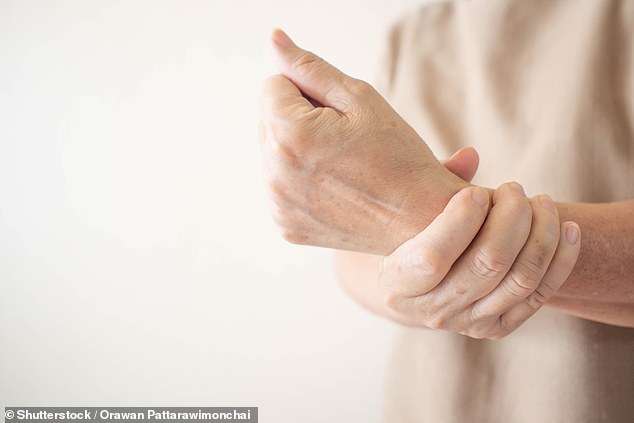<!–
<!–
<!–
<!–
<!–
<!–
Taking nutritional supplements to ward off the effects of menopause may make you more vulnerable to cardiovascular disease, according to a landmark study involving 36,000 women.
Researchers from the US National Heart, Lung and Blood Institute looked at the health outcomes of about 18,000 women who took daily calcium and vitamin D pills for seven years — all of whom were between the ages of 50 and 79.
They followed the women up 20 years later and compared the incidence of heart disease and cancer with a group of a similar number who did not take supplements in their later years.
The results, published in journal Annals of Internal Medicineshowed that those who had taken the pills – which are said to strengthen bones – had a six percent higher risk of dying from cardiovascular disease compared to the other group.

The so-called ‘sunshine pill’ has been touted as an effective preventative treatment for post-menopausal bone problems, but a new study highlights potential harm
But those in the supplement arm of the study were also seven percent less likely to die from cancer.
Notably, the authors said, the increased risk of cancer was only seen in those who had taken supplements in their younger years before the study was launched.
This is the largest randomized trial of women using these supplements, according to the study’s authors.
It was led by the Women’s Health Initiative, which is itself funded by the US government’s National Heart, Lung, and Blood Institute.
The initial study was launched to investigate whether vitamin D and calcium supplements would help prevent hip fractures in postmenopausal women.


It is estimated that, on average, women lose up to 10 percent of their bone mass in the first five years after menopause
Estrogen is essential for repairing and strengthening bones. It declines when women stop menstruating, affecting bone density and increasing the risk of fractures and breaks.
Consuming more of the raw materials that strengthen bones, such as calcium and vitamin D, can be beneficial in preventing injuries. Calcium is the building block for new bone, while vitamin D helps the body absorb the mineral.
A number of larger healthcare organisations, such as Johns Hopkins medicinerecommend increasing consumption of these vitamins after menopause, and some doctors recommend taking supplements.
The Women’s Health Initiative study found that the supplements resulted in a slightly reduced risk of hip fracture in the 14 years after menopause.
The authors suggest that one potential reason why these supplements may harm the cardiovascular system is due to the effect of excess calcium on the blood vessels.
The calcification of blood vessels can cause them to harden and plaque to build up, which can limit blood flow to the major organs and contribute to a heart attack down the line, according to British Heart Foundation.
The authors also offered potential explanations for why these supplements may reduce cancer risk.
They referred to previous studies showing that these nutrients can block the formation of blood vessels in tumors, support cancer-killing genes and help the immune system fight cancer.
Although the authors caution that these findings may not be generalizable. They say some of the results may be due to factors other than supplementation, as the women differed ‘on several demographic and health behavior characteristics’.
But they say the findings warrant further investigation to explore the “benefits or harms of dietary supplements”.
